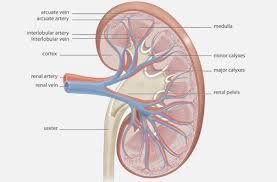Bhubaneswar, March 11: Diabetes and high blood pressure are the leading causes of Chronic Kidney Disease (CKD) with approximately 10 per cent of the global population, including children, affected by some form of kidney damage, experts said at the SOA University on Thursday.
“The latest numbers show that CKD is likely to increase to 17 per cent of the world population by end of the decade. It is now recognized by the WHO and other organizations as a global public health issue,” they said while addressing a gathering organized to mark the World Kidney Day. The program— this year’s theme being ‘Kidney Disease and Children- act early to prevent it’—was organized by the Nephrology department of the Institute of Medical Sciences and Sum Hospital, the faculty of medical sciences of the SOA University.
“Children are found to be born with kidney disease while others develop it when still very young. The symptoms of kidney disease in children are often nonspecific, which means that there is a risk that kidney problems may be missed in children,” Dr RN Sahoo, Head of the department of Nephrology at Sum Hospital, said.
Dr Sahoo said the leading cause of kidney failure in childhood were hereditary conditions, often lacking obvious indicators like RBC in urine, high blood pressure or swelling. Dr Maguni Behera, Associate Professor in the department, said that the Sum Hospital conducted dialysis on around 1000 persons suffering from kidney failure every month, but the alarming fact was that 5 to 6 per cent of the patients were children and young adults in the age group of five to twenty years.
“Though it is a non-communicable disease, the kidney failure appears to be taking an epidemic form. The number of dialysis conducted in our department can easily touch 1,500 very soon,” he said. Prof Gangadhar Sahu, Dean of IMS and Sum Hospital, who attended as chief guest, struck a positive note saying that advances in medical science had been trying to battle the plethora of ailments confronting mankind.
“Now it is possible to even treat the foetal kidneys before the birth of the baby,” he said. Prof PK Mohanty, Consultant- Hospital Services and Dr Pushparaj Samantasinhar, Medical Superintendent, also spoke.
Pointing out that the kidney was a vital organ which filtered around 200 liters of body liquid per day, Dr Sahoo said there was a need for systematic screening of all persons having diabetes or hypertension.
People suffering from kidney failure had two options—either to go for periodic dialysis which was a costly affair or go for one-time kidney transplantation which was a much better option, he said adding nine out of ten persons suffering from CKD had high blood pressure.
The observance of World Kidney Day aimed to raise awareness of the importance of the kidneys to the overall health of a person and to reduce the frequency and impact of kidney disease and its associated health problems worldwide, Dr Sahoo said.




























